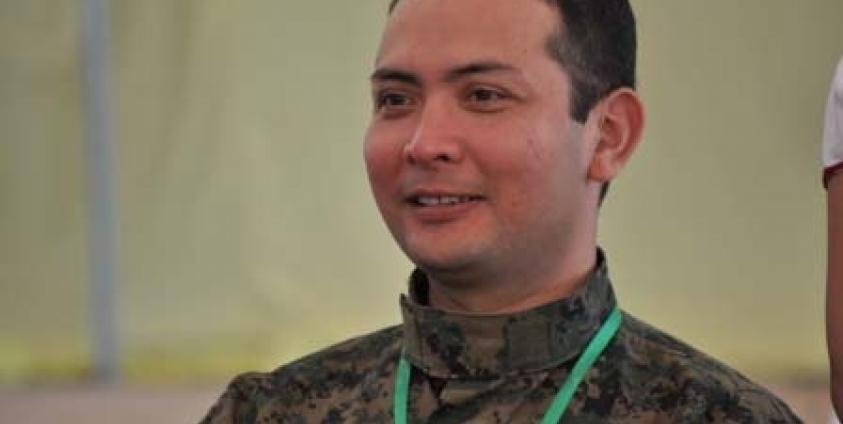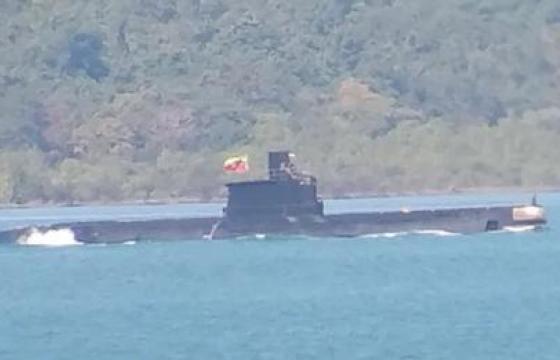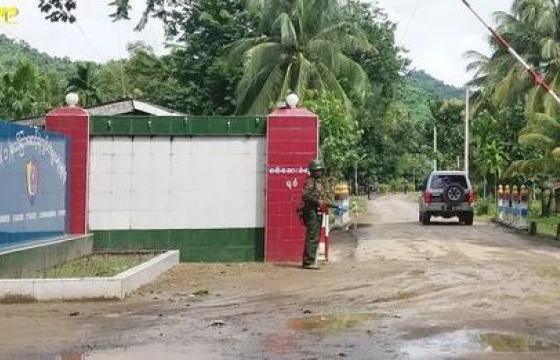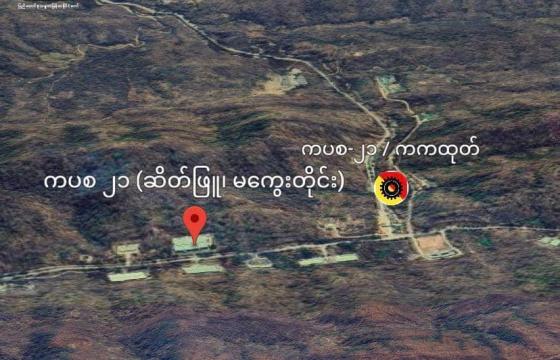Narinjara has interviewed Major General Tun Myat Naing the chief of the Arakan Army (AA) about their involvement in the fighting against the Burma Army in the Kokang area.
Question: “Why is the Arakan Army involved in the current fighting in Kokang?”
Answer: “The Kokang group is our political and military alliance. The Kokang group is also member of the United Nationalities Federal Council (UNFC) and the Nationwide Ceasefire Coordination Team (NCCT). Now we are a currently active organisation based in the ethnic area of northern Burma. That is why we are helping our friends; according to the ethics of friendship when our friends need help we should help them. At the same time we oppose a common enemy who are falsely using the word democracy to govern over all ethnic people.”
Question: “Do you see any way in which the fighting in Kokang can stop and be resolved peacefully?”
Answer: “It is a bit difficult. The main causes [of the fighting] are political problems, so if both sides solve the problems with political talks it is the best way. But, the culture of political dialogue must first grow and then develop in this country. So, [previously] when we have tried to solve problems using political methods we were unsuccessful. It always happens like that, which is not a good result for the country. Whatever happens, we want to get peace.”
Question: “Although the Arakan Army has been involved in the fighting [in the Kokang area] the government does not recognise or want to recognise them. Are the Arakan Army getting involved in the fighting as a way of making the government recognise them?”
Answer: “Recognition [by the government] is not the main thing. The important thing is that we have to do what has to be done. They can say that they do not recognise us and we can also say that we do not recognise them, so we are resisting with armed struggle. We want to question the way they use the word ‘law’ so frequently. We want to know, though they use the word ‘law’ does that mean what they are doing is legal? We have noticed one thing. Regarding the activities of the Arakan Army many Arakan and other people support us. I think when looking at the current situation the government is worried that what we are doing will get us more support. So, if we become prominent in the political arena the government’s expectations [of us] will be shown to be wrong. So, they might be trying to prevent that situation [of the Arakan Army getting more political power]. Our Arakan Army is not only just here, we are also active in many other ethnic alliances’ areas. We can do many things if we want. That is why people’s criticising us for fighting in Kokang when we are not directly affected [by what happens there] is wrong.”
Question: “Will the fighting escalate or decrease? What is your analysis of the current fighting?”
Answer: “If it escalates or not will depend on them [the army]. When they bring in more troops the amount of fighting will increase. Now they are sending many more troops and the government’s army brigades are spreading everywhere. The brigades are not only in Northern Shan State, but also in the Kachin Independence Army (KIA) area. Yesterday [22 February] the government used many forces to fight with KIA Battalion 15 of Brigade 3. There are many [Burma] Army columns making their presence felt in KIA alliance areas. Yesterday [22 February], the fighting in Kokang Self-Administered zone was very heavy. Villages were also burnt down. The government forces also carried out many airstrikes. That is why we can say that the fighting is heavier than before. If the intensity of the war increases or not is down to what the government is going to do.”
Question: “Does the Arakan Army have any plans to make a ceasefire and hold poliical dialogue talks with the government?”
Answer: “We want peace. We are also interested in talking peacefully at the negotiating table to solve political conflict. As for peace, it can be pursued when both sides understand and recognise each other, when that happens political dialogue can start. As revolutionary forces we do not need to push [for political dialogue] from our side. So, if they do not want to talk we just need to fight.”
Translated by Aung Myat Soe English version written by Mark Inkey for BNI







